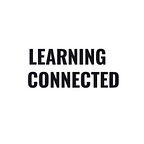The Power of Stories in Learning Mathematics
--
by Ioanna Georgiou
As a maths teacher of more than fifteen years or so, I have been encountered with the questions “why do we do this?” and “how is this useful?” a few too many times to ignore.
The questions are more than fair: the mathematics taught in school was discovered (or invented, depending on your philosophical inclination) several centuries ago. The mathematics used behind the scenes in our increasingly technologically advanced lives are nowhere to be seen in school. So indeed, why and how?
School mathematics forms the basis of more advanced concepts and of course without the fundamentals it is impossible to go any further. Hence it is out of necessity that this is what is taught in school (in terms of content — not approach). This fundamental part of mathematics, albeit now very old and simplistic in a sense, was of course once the cutting edge of what was going on.
Many years ago, as an undergraduate student of mathematics, I came across a most wonderful novel called “The Parrot’s Theorem” by the French author Denis Guedj. In this seemingly ordinary novel that starts with a fire at a house and a subsequent death of its (mathematician) owner, the reader does not know whether the fire was an accident, a murder or even a suicide. The mathematician had incidentally shipped his entire library of maths books to his friend in Paris; devastated by the loss of his friend, and determined to find out whether there was a connection between the death and the shipment of books he had received, he summons his extended family and together they go through the books. That’s where the author essentially embarks the reader on a journey through maths.
Seeing mathematical ideas emerging in their local societies through practical needs as well as intellectual curiosity was eye-opening. Everything suddenly started falling into place for me, an adult undergraduate maths student. And then it occurred to me: if this is helpful for me, a person already quite into maths, maybe it’ll help people who feel alienated by the strict and abstract symbolic form. A form lacking any sentiment — apart from maybe fear and anxiety.
I took modules on the history of maths, expanded my own readings, and during my MSc and MPhil studies I continued to look into educational approaches through the history and local practices such as ethnomathematics. As a practitioner, I use those stories in my teaching. I have also been presenting masterclasses and workshops on “stories from maths” for the Royal Institution of Great Britain and also independently. It is highly satisfying to see the students’ faces lit up when they realise the reason why calculating in fives and tens is so easy: it has always been with them, their own personal abacus — their fingers! Or that the peculiar number 360, (who would have chosen that number to describe the degrees in a circle!) is nothing but a nicely (albeit strictly speaking wrong) rounded version of the days in a year.
This experience has culminated in the writing of my first nonfiction book for children, entitled “Mathematical Adventures!” Through this book I aspire to give learners a glimpse of how it all started, and how it progressed, making some stops to times and events that were rather seminal. Tarquin Group, a publisher that specialises in educational and recreational mathematics books was supportive from the beginning and showed real faith in the book.
The content has been thoroughly trialled for many years. The students’ answers to my questions and their own questions have given shape to the stories that made it through; distilled, concise and relevant, there are lots of connections with what they see in school, alongside some more recent maths that did not make it through the curriculum such as Euler’s graph theory or Cantor’s mind-bending multiple infinities. Euclid’s postulates leading to all the school geometry are fascinating and could not have imagined them coming more alive than in Asuka Young’s illustrations. Her amazing interpretation of these stories from maths have made the book a colourful adventure which I hope many students, parents and teachers alike will enjoy to embark upon!
Ioanna Georgiou is the Head of Mathematics & Head of Academic Enrichment at St James Senior Girls’ School, London. She is also a Masterclass Presenter
at The Royal Institution of Great Britain.
Buy Mathematical Adventures here: https://www.tarquingroup.com/mathematical-adventures.html
